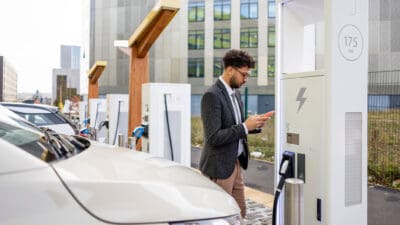Vulcan Energy Resources Ltd (ASX: VUL) shares are catching the eye on Friday.
In early trade, the ASX lithium share was up as much as 13.5% to $2.34.
Its shares have eased back a touch since then but remain up 9% to $2.24 at the time of writing.
Why is this ASX lithium share rocketing?
Investors have been buying the company's shares today after it released an update on the funding of its Zero Carbon Lithium Project in Germany.
According to the release, after preliminary due diligence, Vulcan's Phase One project appears potentially suitable for European Investment Bank (EIB) financing and the project has advanced to the "Under Appraisal" stage.
The EIB is the lending arm of the European Union (EU) and one of the largest climate finance providers.
The proposed financing could amount to up to 500 million euros (~A$825 million), pending completion of due diligence, credit approval and legal agreement, and subject to EIB's governing bodies approval.
Vulcan highlights that this funding is expected to serve as a cornerstone to complement ongoing debt funding discussions with leading export credit agencies and international banks.
What is the the project?
Phase One of Vulcan's Zero Carbon Lithium project in Germany is targeting the production of 24,000 tonnes per annum (tpa) of lithium hydroxide. This is enough to support the production of 500,000 electric vehicles.
One company that will be using this lithium, if all goes to plan, is Stellantis. The auto giant is the company's second largest shareholder and has an offtake agreement in place.
The ASX lithium share's CEO, Cris Moreno, said:
We welcome the support of the EIB. This is a strong and tangible signal of confidence at the European level for the Zero Carbon Lithium Project, and of its capability to enable a secure, domestic lithium supply chain for electric vehicle batteries for Europe. This progression in EIB's financial appraisal is a positive step forward in the sequence of our debt and project level equity financing for Phase One of the Project, which is anticipated to create millions of tonnes of carbon avoidance in the EV supply chain in the years to come.









